
Advertise on podcast: GeriPal - A Geriatrics and Palliative Care Podcast
Rating
4.9 from
Country
This podcast has
299 episodes
Language
Publisher
Explicit
No
Date created
2016/10/11
Average duration
50 min.
Release period
10 days
Description
A geriatrics and palliative care podcast for every health care professional. We invite the brightest minds in geriatrics, hospice, and palliative care to talk about the topics that you care most about, ranging from recently published research in the field to controversies that keep us up at night. You'll laugh, learn and maybe sing along. Hosted by Eric Widera and Alex Smith. CME available!
Social media
Check GeriPal - A Geriatrics and Palliative Care Podcast social media presence
Podcast episodes
Check latest episodes from GeriPal - A Geriatrics and Palliative Care Podcast podcast
Psychological Issues in Palliative Care: Elissa Kozlov and Des Azizoddin
2024/02/22
In our podcast with palliative care pioneer Susan Block, she identified the psychological/psychiatric aspects of palliative care as the biggest are of need for improvement. As she said, when you think about the hardest patients you’ve cared for, in nearly all cases there was some aspect of psychological illness involved. That rings true to me.
Today we talk with two psychologists who are deeply invested in addressing psychological aspects of care for people living with serious illness. Elissa Kozlov, a geropsychologist and director of a new population aging MPH at Rutgers, surveyed AAHPM members, and found that doctors reported major shortcomings in level of comfort and knowledge caring for patients with psychological illness. She conducted a systematic review and meta-analysis of 38 palliative care trials, finding that many excluded people with serious illness, and a lack of impact on psychological outcomes. Analyzing the Health and Retirement Study, she found 60% of older adults screened positive for depression in the last year of life (related study here).
Des Azizoddin is a psychologist at the University of Oklahoma primarily focused on pain for people with cancer. Des delivered a plenary at this year’s National Palliative Care Research Center’s Foley retreat. She began by asking, “Raise your hand if you think there is a psychological component to cancer pain.” All hands go up. Then, “Keep your hand up if you frequently refer patients with cancer pain to a psychologist?” All hands go down. Unfortunately, we lack the financial structures to reimburse psychologists that would incentivize widespread inclusion on palliative care teams. Because we live in the world as it is, not as it should be, Des has helped develop an app (link to pilot trial hot off the press!) to help people with cancer pain engage in cognitive behavioral therapy in bite sized 3-4 minute sessions (there are other apps available now developed in the VA, who have been leaders in the psychology/palliative care space). Des additionally studied stigma associated with opioid use among patients with cancer in the context of the opioid epidemic; depression, pain catastrophizing, recent surgery and opioid use among people with cancer.
And, we talk about these issues and more (with far more nuance than I can include in this post).
Kudos and credit to my son Renn, age 15, for the guitar on Heartbeats (hand still broken at time of recording).
more
EMS Intervention to Reduce Falls: Carmen Quatman and Katie Quatman-Yates
2024/02/15
We've talked about Falls a couple of times on this podcast, most recently with Tom Gill about the STRIDE study and before that with Sarah Szanton about the CAPABLE study. A takeaway from those podcasts is that fresh innovative thinking in the falls prevention space is welcome.
Today we talk with the twin sister power duo of Carmen Quatman and Katie Quatman-Yates about an intervention that is both brilliant and (in retrospect) should have been obvious. The insight started when Carmen, an orthopedic surgeon-researcher, and Katie, a physical therapist- researcher participated in ride-alongs with EMS providers to patient’s homes. They were stunned by the number of calls for lift assistance for older adults who had fallen. Going into patient's homes was eye opening. There were trip hazards, loose carpets, some people were hoarders. And yet, after assisting the older adult to their feet, the EMS providers would leave. Their job was done. It's not surprising that the number of repeat calls for falls is alarmingly high. Addressing the root environmental causes of falls was not part of EMS providers' job description. In addition to stigma, practical barriers to older adults addressing environmental issues themselves abound. For example, Carmen and Katie found thousands of grab bars on Amazon (overwhelming), and when they called installation companies (handypersons), received different quotes if the person calling was a man or a woman.
So Carmen and Katie developed an EMS Community Partnership program. EMS providers were trained to provide practical home modifications: installation of grab bars, removal of carpets, removal of other obstacles. They created a seamless link between this Community Partnership program and 911 calls for falls. People who had grab bars installed through the program called their neighbors and say, hey you should get this too. Word of mouth spread rapidly. And the number of calls for falls dropped.
Eric and I enjoyed talking with Carmen and Katie about this innovative and common sense approach to addressing falls in the community.
In addition to the podcast, you can see more about this in Carmen's TEDx talk.
Thanks to my wife Cindy Hsu for piano on Eye of the Tiger. Enjoy!
-@alexsmithMD
more
The Nature of Suffering: BJ Miller and Naomi Saks
2024/02/08
In 1982 Eric Cassell published his landmark essay: On the Nature of Suffering and the Goals of Medicine. Though his narrow definition of suffering as injured or threatened personhood has been critiqued, the central concept was a motivating force for many of us to enter the fields of geriatrics and palliative care, Eric and I included.
Today we talk about suffering in the many forms we encounter in palliative care. Our guests are BJ Miller, palliative care physician and c-founder of Mettle Health, and Naomi Saks, chaplain at UCSF.
We discuss:
How to respond when a nurse or trainee says, “I think this patient is suffering,” but the family does not share that perception
The trap in comparing one person’s suffering to another person’s suffering
How to respond to suffering, from naming to rebirth
Ways in which suffering can bring meaning and purpose, or at the very least co-exist alongside growth and transformation
The extent to which elimination of suffering ought to be a goal of palliative medicine (with a nod to Tolstoy)
A simple 2 sentence spiritual assessment
Credit to my son Kai Smith on guitar on Everybody Hurts for those listening to audio only (hand still splinted at time of this recording)
-@AlexSmithMD
Additional links:
Screening for suffering: https://pubmed.ncbi.nlm.nih.gov/27714532/ and https://pubmed.ncbi.nlm.nih.gov/35195465/ and https://pubmed.ncbi.nlm.nih.gov/31387655/
Evans CB, Larimore LR, Grasmick VE. Hospital Chaplains, Spirituality, and Pain Management: A Qualitative Study. Pain Manag Nurs. 2023 Dec 20:S1524-9042(23)00202-3. doi: 10.1016/j.pmn.2023.11.004. Epub ahead of print. PMID: 38129210.
Kleinman, A. (2020). The illness narratives suffering, healing, and the human condition.
Accepting This
Poem by Mark Nepo
https://marknepo.com/poems_accepting.php
Saks, N., Wallace, C.L., Donesky, D., & Millic, M. (in preparation). “Profession-specific Roles in Palliative Care.” In Donesky, D., Wallace, C.L., Saks, N., Milic, M. & Head, B. (eds.), Textbook on Interprofessional Palliative Care. Oxford University Press.
more
RCT of Default Inpatient PC Consults: Kate Courtright & Scott Halpern
2024/02/02
Last week we talked about a trial of a nurse and social worker outpatient palliative care intervention published in JAMA. This week, we talk about the other major palliative care trial of default palliative care consults for hospitalized older adults with COPD, kidney disease, or dementia, published in the same issue of JAMA. (See also our accompanying editorial, first author Ashwin Kotwal who joins today as a co-host, and a podcast I recorded with JAMA editor Preeti Malani). For context, listen to the prior podcast with Scott on “nudges” and prior podcast with Kate on who should get palliative care.
Three things I love about this podcast, and why you should listen. First, in our editorial, we expressed concern about the length of stay metric not being patient centric, though important for health systems focused on cost savings. It was refreshing to hear Scott and Kate express similar sentiments. Second, we wanted to know how the palliative care clinicians felt about the increased workload - and we had some glimpses into those experiences (and hope for a future publication that fleshes it out further). Finally, we heard about next steps and lessons learned, as though this was the largest pragmatic trial of palliative care to date, it isn’t their last. Much more to come. And next time maybe we really will play the game where every time the word pragmatic is mentioned you have to drink 🙂
And I get to play Phish, who Scott has seen about 100 times in concert. I saw them only twice. Once as an undergraduate at Michigan, in 1994. They played Hill auditorium and I signed up to be an usher. Can you imagine trying to usher Phish Heads to stay in their assigned seats? Yeah, no. Gave up at some point and joined them. Full electric experience. Second time was with Neil Young at the Bridge School Benefit at the Shoreline Amphitheater, California in 1998. That concert, entirely acoustic, was impressive in its sheer musical virtuosity. You're kind of naked playing acoustic like that. On today’s podcast you get me, not naked, though still only with 2 left fingers (hand still broken) on the guitar, playing “Miss You.”
-@AlexSmithMD
Additional links:
Trey Anasatsio playing Miss You alone and acoustic, start around 21 minutes for the lead in
Original article describing the potential for default options to improve health care delivery: https://www.nejm.org/doi/full/10.1056/NEJMsb071595
Scott on goals of care as the elusive holy grail outcome of palliative care trials (we discussed toward the end): https://www.nejm.org/doi/full/10.1056/NEJMp1908153
The protocol paper for REDAPS: https://www.atsjournals.org/doi/10.1513/AnnalsATS.201604-308OT
Big recently funded PCORI trial comparing specialist PC delivered by default vs. generalist PC following CAPC training + a different EHR nudge: https://www.pcori.org/research-results/2023/comparative-effectiveness-generalist-versus-specialist-palliative-care-inpatients
Kate’s “Palliative Connect” RCT: https://clinicaltrials.gov/study/NCT05502861?term=katherine%20courtright&rank=1
more
RCT of Palliative Care for Heart Failure and Lung Disease: David Bekelman and Lyndsay DeGroot
2024/01/25
In a JAMA 2020 systematic review of palliative care for non-cancer serious illness, Kieran Quinn found many positives, as we discussed on our podcast and in our editorial. He also found gaps, including very few studies of patients with lung disease, and little impact of trials on quality of life. The article we discuss today, also published in JAMA, addresses these two gaps.
David Bekelman conducted a RCT of a nurse and social worker telephone intervention (ADAPT intervention) for people with heart failure and lung disease (COPD or ILD). David has been conducting outpatient trials in this space for some time, such as the CASA study he mentions today, learning important lessons along the way. This is the first study that is unequivocally positive, improving overall quality of life and depression. Today we unpack this study, with the help of Lyndsay Degroot, a postdoc and nurse researcher focused on identifying the core aspects of the study and eventually testing the study in more diverse populations. In the accompanying editorial written by Ashwin Kotwal, Lauren Hunt, and the guy singing on today’s podcast, we talk about the strengths and limitations of this study, something we “get into” with the authors toward the end of today’s podcast. We are also joined by Diah Martina, a palliative care doctor trying to grow palliative care in Indonesia, in part by starting a palliative care podcast in Indonesian (she was observing today).
You can also listen to an audio interview with Alex and JAMA Deputy Editor Preeti Malani about this study and the other RCT of default palliative care for hospitalized older adults with noncancer serious illness published in the same issue. Stay tuned for a GeriPal podcast with the authors of the other study next week.
Credit to my wife Cindy for piano on the audio-only version of Ben Rector’s The Best is Yet to Come. Enjoy!
-@AlexSmithMD
more
Substance Use Disorder in Aging and Serious Illness: A Podcast with Katie Fitzgerald Jones, Jessica Merlin, Devon Check
2024/01/18
The CDC’s Guideline for Prescribing Opioids for Chronic Pain excludes those undergoing cancer treatment, palliative care, and end-of-life care. In doing so, it seems to give the impression that pain seen in cancer is inherently different than pain seen in other conditions and that those with cancer may not have the same risk for opioid use disorder as compared to other conditions.
Today's podcast tackles these issues and more with three amazing guests: Katie Jones, Jessica Merlin, and Devon Check. We start off the conversation by talking about whether patients with cancer and cancer pain are really that different, and their paper that was just published on January 11th in JAMA Oncology showing that substance use disorder is not uncommon in individuals with cancer.
After discussing screening options for substance use disorder, we go on to talk about both the treatments for it and the issues that arise. In particular, we talk about Katie’s and Jesica’s paper in NEJM titled “Juggling Two Full-Time Jobs — Methadone Clinic Engagement and Cancer Care,” which described the difficulty in managing cancer pain and methadone for opioid use disorder.
Lastly, we discuss Katie’s paper on substance use disorder in an aging population and how one can incorporate the 5 Ms (ie, matters most, medications, mind, mobility, and multicomplexity) into a framework for age-friendly care for older adults with substance use disorder.
If you want to do a deeper dive, here are some other references we talk about in the podcast:
Previous podcasts on substance use disorder
Buprenorphine Use in Serious Illness: A Podcast with Katie Fitzgerald Jones, Zachary Sager and Janet Ho
Substance Use in Older Adults: A Podcast with Ben Han
Palliative Care, Chronic Pain, and the Opioid Epidemic: GeriPal Podcast with Jessie Merlin
Expert consensus-based guidance
Expert consensus-based guidance on approaches to opioid management in individuals with advanced cancer-related pain and nonmedical stimulant use
Consensus-Based Guidance on Opioid Management in Individuals With Advanced Cancer-Related Pain and Opioid Misuse or Use Disorder
Expert Panel Consensus on Management of Advanced Cancer-Related Pain in Individuals With Opioid Use Disorder
more
What is going on with MAID in Canada? Bill Gardner, Leonie Herx, & Sonu Gaind
2024/01/11
Four percent of deaths in Canada are due to Medical Assistance in Dying (MAID). Four percent.
The number of people who have used MAID in Canada since it was legalized in 2016 has increased year on year from about 1,000 people in the first year to over 13,000 people in 2022. California, which has a similar population size as Canada and legalized MAID around the same time, has fewer than 1000 deaths per year from MAID.
In further contrast to the United States, MAID in Canada is almost entirely administered by a clinician, whereas in the United States patients must self administer. To be eligible in Canada patients must have a “grievous and irremediable” condition, including disability; they do not have to have a terminal illness with a prognosis of less than 6 months. They could have a prognosis of years, or decades.
A planned expansion of MAID to include people with mental illness was placed on hold until March 2024. The Canadian parliament will soon hear a report on potentially expanding MAID to “mature minors.” A recent Human Rights podcast discussed the story of a Canadian seeking MAID because he could not afford to stay housed.
Today we talk about these issues with Bill Gardner, a psychologist at the University of Ottawa who is living with cancer, Leonie Herx, a palliative care physician at the University of Calgary, and Sonu Gand, a psychiatrist at the University of Toronto and former president of the Canadian Psychiatric Association. We talk about how Canada got to this point, including the degree to which offering MAID to anyone who is eligible has become standard practice in many places. We hear Bill Gardner's experience being told that his cancer could not be treated and immediately offered two options: palliative care or MAID. We talk about the role of palliative care and lack of access for many people living with serious illness in Canada. We go in depth about ethical issues raised by the planned expansion of MAID to people with mental illness.
Much of the criticism of the explosion of MAID in Canada is coming from people like, our guests, who feel that MAID should be an option for a select few, rather than coming from under-no-circumstance opponents.
To many this rapid expansion will represent autonomy run amok. It is the slippery slope made real. To others MAID represents a seemingly easy and inexpensive mechanism to address failures of the system to address potentially reversible sources of suffering on a systemic level, from difficult conversations at the bedside, to meeting basic needs like housing.
For those listening to the podcast, credit to Kai for guitar on Neil Young’s Cortez the Killer (my left hand is still broken at the time of this recording). You get me with one-finger-chords on the guitar if you're watching on YouTube (best I could manage).
-@AlexSmithMD
Overview of MAID in Canada
Bill Gardner’s article about MAID in Comment Magazine
https://comment.org/death-by-referral/
Bill Gardner’s articles about living with terminal cancer in Mockingbird Magazine:
https://mbird.com/art/cancer-in-advent/
https://mbird.com/religion/testimony/in-the-electors-school/
more
Guiding an Improved Dementia Experience (GUIDE) Model: A Podcast with Malaz Boustani and Diane Ty
2023/12/21
We’ve talked a lot about comprehensive dementia care on the GeriPal podcast but while the evidence is clear that these programs work, the uptake has been limited largely because there hasn't been a strong financial case for it. Don’t get me wrong, the evidence points to cost savings, but as Chris Callahan and Kathleen Unroe pointed out in a JAGS editorial in 2020 “in comprehensive dementia care models, savings may accrue to Medicare, but the expenses accrue to a fluid and unstable network of local service providers, patients, and their families.”
The good news is that the financial case for comprehensive dementia care is changing thanks to a new Center for Medicare and Medicaid Innovation (CMMI) alternative payment model (APM) called Guiding an Improved Dementia Experience (GUIDE) Model. This model will give participating programs a per-member-per-month payment to offer care management, care coordination, and other services such as caregiver training, disease education, and respite.
On today's podcast we talk with Malaz Boustani of Indiana University, as well as Diane Ty, the senior director of the Milken Institute Center for the Future of Aging, about the GUIDE model. We’ll cover why the GUIDE model is important (hint - it all comes down to funding), how it was developed, what components will it include, and how it will be evaluated.
To read more about the GUIDE model, check out the following links:
Diane’s article in Health Affairs titled “A Promising Turning Point For Dementia Care: The GUIDE Model”
Another Health Affairs article titled “Applying An Evidence-Based Approach To Comprehensive Dementia Care Under The New GUIDE Model”
The CMS site if you are interested in learning more or applying to be a site (the application period will close on January 30, 2024)
more
Influence of Hospital Culture on Intensity of Care: Liz Dzeng
2023/12/14
One of the things I love about Liz Dzeng’s work is the way in which it draws upon, echoes, and advances our understanding of the influence of culture on the end of life experience. This field is not new. In his book The Hour of our Death Philip Aries described a long evolution in western civilization of cultural attitudes towards dying. More recently Sharon Kaufman 's book And a Time to Die described the ways in which physicians, nurses, hospital systems, and payment mechanisms influenced the hour and manner of patient's deaths. Similarly Jessica Zitter, an intensivist and palliative care doctor analogized the inevitable clinical momentum toward highly aggressive intensive care in US hospitals as a conveyor belt.
Today Liz Dzeng discusses her journey towards studying this issue in detail. Having trained in different institutions within the United States and in the United Kingdom, and as both a sociologist and a hospitalist physician, Liz brings a unique perspective and set of skills to this issue. On this podcast we talk about her paper in JAMA Internal Medicine which studied three hospitals that varied in the intensity of care they provided to seriously ill patients. We discuss the moral distress that clinicians felt including, as one physician put it, a sense of your soul being ripped out. At the end we also pay tribute to Randy Curtis, senior author on this paper and mentor to Liz. Eric and I are joined today on this podcast by Anne Kelly palliative care social worker to discuss these issues with Liz.
-@alexsmithMD
Additional links:
From Liz: “policies that are too restrictive can actually have an opposite of hindering ethically and clinically appropriate practices whereas policies that allow for flexibility and transparency to act ethically can promote high quality end-of-life care” https://www.ncbi.nlm.nih.gov/pmc/articles/PMC8883558/
Other papers that are relevant:
JAMA IM 2015: https://jamanetwork.com/journals/jamainternalmedicine/fullarticle/2212265
JPSM LAT France paper: https://www.jpsmjournal.com/article/S0885-3924(21)00399-7/pdf
ICM paper policies: https://www.ncbi.nlm.nih.gov/pmc/articles/PMC8883558/
JPSM aggressive care: https://www.jpsmjournal.com/article/S0885-3924(17)30425-6/fulltext
BMJ QS moral distress ethical climate: https://qualitysafety.bmj.com/content/27/10/766.long
more
Aging and Climate Change: Karl Pillemer, Leslie Wharton, & Ruth McDermott-Levy
2023/12/07
To my teenagers, climate change is an existential crisis. It’s the end of the world as we know it. They decry the lack of serious attention and prioritization this issue has in the US. My kids ask - why don’t adults care about this issue the same way that they and their friends care about it? My kids have taught me that the emphasis on personal responsibility (reduce your carbon footprint!) was supported by the fossil fuel industry, because it shifted responsibility for change from industry to individuals. Voting and emailing congress to advocate for systemic change (e.g. less reliance on fossil fuels) likely has a greater impact than recycling your newspaper.
Today we find inspiration for my kids: there are adults who care deeply about this issue, particularly for older adults who are much more vulnerable to health effects of climate change. Karl Pillemer is a sociologist and gerontologist who studies this issue and has created a platform called, “Aging and Climate Change Clearinghouse,” that is a wide tent with room for older adults, researchers, and organizations. As a researcher, I found the bibliography fascinating, including this gem by the gerontologist Rick Moody on the moral obligation of older adults to address climate change.
Leslie Wharton is a leader in the 26,000 member grassroots organization Elders Climate Action, which organizes older adults to create communities engaged in making a difference at local, state, and national levels. As she notes, these volunteer activities can bring meaning and purpose, in the face of a seemingly insurmountable problem, to the elders in her organization.
And we talk with Ruth McDermott-Levy, who wrote a practical guide for discharge planning in the era of climate change (example - a generator safety checklist). Ruth advocates for and teaches about aging and climate change at Villanova, and calls on nurse scientists and other health researchers to study climate change.
-@AlexSmithMD
Additional links:
JAMA paper on clinical research risks, climate change, and health
Geriatric medicine in the era of climate change
Health Care Without Harm: https://noharm.org/
Practice Green Health: https://practicegreenhealth.org/
Global Consortium for Climate and Health Education: https://www.publichealth.columbia.edu/research/programs/global-consortium-climate-health-education
more
Redefining Alzheimer's Disease: A Podcast with Heather Whitson, Jason Karlawish, Lon Schneider
2023/12/01
There is a growing push to change how we define Alzheimer's disease from what was historically a clinically defined syndrome to a newer biological definition based on the presence of positive amyloid biomarkers. This proposed new definition, championed by the Alzheimer's Association (AA) and the National Institute on Aging (NIA), proposes that the disease exists when the earliest manifestation of Alzheimer’s pathophysiology can be detected (amyloid), even though onset of symptoms may be years in the future.
On today's podcast we talk about the benefits and drawbacks of redefining Alzheimers to a biological definition with three experts in the disease: Heather Whitson, Jason Karlawish, and Lon Schneider. In particular we spend a good deal of time talking about what this means for asymptomatic patients who may have an abnormal biomarker, which by the proposed new definition would mean they would now have Alzheimer's disease.
If you are interested in learning more about the draft guidelines and the response from AGS to these guidelines, check out the following links:
Revised Criteria for Diagnosis and Staging of Alzheimer's Disease: Alzheimer’s Association Workgroup
AGS’s response to the revised criteria
more
Should you have a coach? Greg Pawlson, Beth Griffiths, & Vicky Tang
2023/11/09
Coaching is in. During the later stages of the pandemic, it seemed every other person, and particularly the junior faculty in our Division, were either being coached, in training to coach, or coaching others. When I was a junior faculty, coaching wasn’t a thing. Sure, Atul Gawande wrote about coaching in surgery - having someone observe you and coach you on your technical skills- but that’s a far cry from the coaching programs focused on empowerment that are exploding around the country today.
Today we learn more about coaching from 3 coaches: Greg Pawlson, coach and former president of the American Geriatrics Society, Vicky Tang, geriatrician-researcher at UCSF and coach, and Beth Griffiths, primary care internist at UCSF and coach. We address:
What is coaching? How does it differ from therapy? How does it differ from mentoring
What is typically covered in coaching sessions?
What is the evidence (see many links below, sent by Beth)
What are the standards for becoming a coach?
Who is coaching for?
My take: coaching has tremendous potential. There seems to be a gender story here as well - coaching may be of particular benefit to women who are at higher risk for burnout. Note, for example, the hot off the press JAMA Network Open trial which demonstrated modest benefits across a range of outcomes was conducted exclusively in female resident physicians. Kemi Doll, a physician-researcher and coach, has a terrific podcast I highly recommend everyone listen to, though it is targeted at women of color in academic medicine. On the other hand, there is a concerning side, described in this Guardian article titled, I’m a life coach, you’re a life coach: rise of an unregulated industry. See also the long list of disclosures in the JAMA Network Open study. Our guests note, rightly, that the same profit motive and concerns are true about colleges. Still, I remain concerned when I see that the Life Coach School costs $21K; when the founder of the Life Coach School’s goal is to grow a $100 million/year business; and when my spidey sense tells me there’s something cultish about the empowerment industry. So, I see the potential of coaching, particularly for groups that face challenges in academic medicine; and I worry about the injection of profit-motives and the goals of industry leaders pushing the meteoric rise of the life coach industry.
-@AlexSmithMD
1. Hot off the presses RCT in JAMA October 2023: Study that looks at 1000 female resident physicians at 26 sites that showed that coaching improved each outcome assessed (burnout, moral injury, imposter syndrome, self-compassion, and flourishing).
https://jamanetwork.com/journals/jamanetworkopen/fullarticle/2810135
2. An RCT for female residents published in JAMA May 2022: This was the initial pilot single institution study by the same team as above. Their findings concluded that it was feasible to implement an online coaching program for female residents and that coaching improved emotional exhaustion, imposter syndrome and self-compassion.
https://jamanetwork.com/journals/jamanetworkopen/fullarticle/2791968?fbclid=IwAR0taY5CGpUa5eyfleNIl7RfXLT7qVt0GakKPGlT9ESIPLn0yCKWG9obrZo
3. A March 2022 study of Stanford offering coaching as a benefit to their physicians and finding improved self-compassion and burnout. https://www.mayoclinicproceedings.org/article/S0025-6196(22)00038-6/fulltext
4. The initial RCT published on physician coaching in JAMA in 2019 showing that coaching improves quality of life. This is the first RCT that was available for coaching in physicians. https://jamanetwork.com/journals/jamainternalmedicine/fullarticle/2740206
5. A 2020 RCT of coaching for primary care physicians shows that coaching improves burnout well-being during the intervention and has a sustained duration at 6 months of follow up. From Beth Israel and UNC. https://pubmed.ncbi.nlm.nih.gov/32297776/
6. The Busin
more
Podcast reviews
Read GeriPal - A Geriatrics and Palliative Care Podcast podcast reviews
The OGG
2024/02/13
Great info, fun to listen
I love this podcast. Eric and Alex (and frequent guest cohosts) offer up-to-date and engaging information about hot topics in geriatrics and palliativ...
more
indiaphile
2023/10/19
Geripal
As a Geriatrician working in LTC I find Geripal a useful and enjoyable podcast. One of the best in the field.
sdpatel07
2023/05/27
Great Podcast!
I’ve learned so much!!
Jenny Gargano
2022/10/22
Review
Love you podcast! How about including one on interventional pain management?
Yael Schenker
2022/10/19
Outstanding palliative care podcast
Geripal never fails to both inform and entertain. As a palliative care physician and researcher, I love the chance to hear from researchers about the...
more
BRCMDLA
2022/05/14
A must-listen for all physicians
Excellent podcast with practical and insightful information for me as a doctor and medical director.
mrh2276
2021/12/16
Best in the biz
Insightful questions and fantastic guests! This is how I stay up-to-date on advances (and controversy) in palliative care. Thanks guys!
MarySTwo
2021/12/15
Every geriatric social worker should listen!
This podcast makes otherwise inaccessible (because it is published in journals most of us don’t subscribe to), but valuable information understandable...
more
Nifermorg
2021/11/18
Thank you
I’m a nurse (PhD student with interest in EOLC). I learn so much from your show.
ghashcjahcjsahcjs
2021/11/09
It’s everything you want!
Informative, humorous at times and always filled with highly useful takeaway lessons. By far the best pall med podcast m!
Podcast sponsorship advertising
Start advertising on GeriPal - A Geriatrics and Palliative Care Podcast & sponsor relevant audience podcasts
You may also like these medicine Podcasts
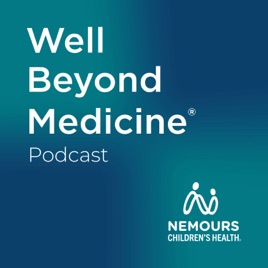
5
20
67
Well Beyond Medicine: The Nemours Children's Health Podcast
Nemours Children's Health

4.9
264
141
Straight from the Horse Doctor's Mouth
Dr. Erica Lacher and Justin Long
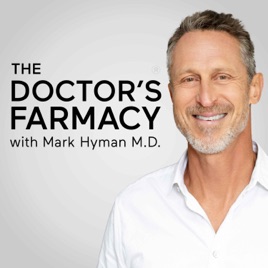
4.6
7785
956
The Doctor's Farmacy with Mark Hyman, M.D.
Dr. Mark Hyman
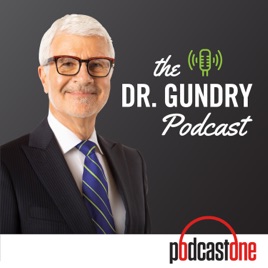
4.6
1531
368
The Dr. Gundry Podcast
PodcastOne
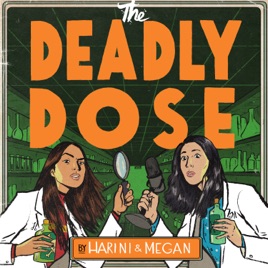
4.7
65
100
The Deadly Dose
Harini Bhat & Megan Gesner
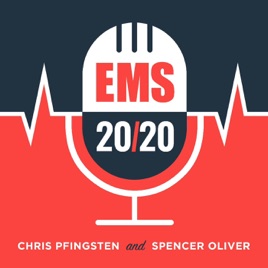
4.9
664
140
EMS 20/20
Christopher M Pfingsten, Spencer Oliver
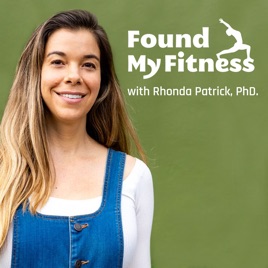
4.8
4943
85
FoundMyFitness
Rhonda Patrick, Ph.D.

4.8
3001
477
The Curbsiders Internal Medicine Podcast
The Curbsiders Internal Medicine Podcast
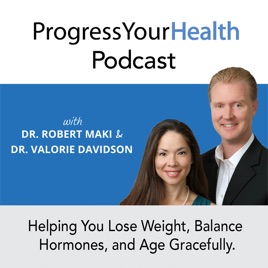
4.8
70
128
Progress Your Health Podcast
Dr Robert Maki and Dr Valorie Davidson
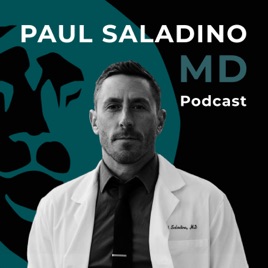
4.8
2400
311
Paul Saladino MD podcast
Paul Saladino, MD



